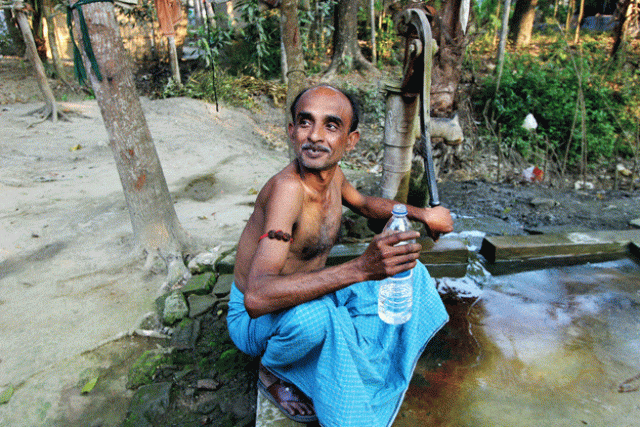Indian village gets 'world's cheapest bottled water'
The plant produces 8,000 litres of potable water per day, with each bottle of water costs less than one US cent

The plant produces 8,000 litres of potable water per day, with each bottle of water costs less than one US cent. PHOTO: AFP
After years of suffering illnesses from drinking polluted ground water, residents of Madusudankati are now receiving clean bottled supplies thanks to a new purification plant.
"I saw a ray of hope when I heard that a water purifying plant would be installed in our village," local farmer Pralay Mallick said.
"I thought that our children would be safe."
Bindeshwar Pathak, founder of Indian charity Sulabh International, said the plant started operating several months ago with the capacity to produce 8,000 litres of potable water per day.
"And the water costs 50 paise (less than one cent) per litre, which makes it the cheapest purified, bottled water in the world," Pathak told AFP.
"The village cooperative has been entrusted to supply the water in 20 litre bottles to households, shops and markets in the area," he said, adding that more than 10,000 people were benefiting from the project.
"The water is also supplied free to schools."
For residents of Madusudankati, close to the border with Bangladesh, the plant has proved a saviour after years of suffering from skin and other diseases blamed on arsenic in ground water pumped from wells.
"It sounded to us like escape from arsenic poisoning," said community leader Haladhar Sarkar whose residents are unsure how toxins found their way into the water.
India has a long history of abuse of water supplies, including from pesticides, industrial pollution and runoff from untreated sewage, to over-exploitation, especially for irrigation.
The new plant, which treats water collected in a deep, man-made pond at the village, has been developed by Sulabh and French NGO 1001 Fontaines (Fountains).



















COMMENTS
Comments are moderated and generally will be posted if they are on-topic and not abusive.
For more information, please see our Comments FAQ